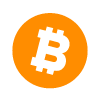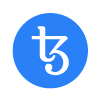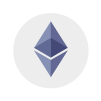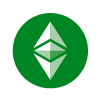Research
FameEX Research focuses on the digital asset market and provides expert-level analysis with objective and fair insights for users globally. With our innovative ideas, we aim to connect everyone in the world.
Project


Bitcoin(BTC)
Bitcoin is a Peer-to-Peer Online Currency
Bitcoin is a decentralized cryptocurrency originally described in a 2008 whitepaper by a person, or group of people, using the alias Satoshi Nakamoto. It was launched soon after, in January 2009.Bitcoin is a peer-to-peer online currency, meaning that all transactions happen directly between equal, independent network participants, without the need for any intermediary to permit or facilitate them. Bitcoin was created, according to Nakamoto’s own words, to allow “online payments to be sent directly from one party to another without going through a financial institution.”Some concepts for a similar type of a decentralized electronic currency precede BTC, but Bitcoin holds the distinction of being the first-ever cryptocurrency to come into actual use.


Chiliz(CHZ)
Chilliz is a network optimized for sports and entertainment engagement
Chiliz is the leading digital currency for sports and entertainment by the eponymous Malta-based FinTech provider. It operates the blockchain-based sports entertainment platform Socios, which enables users to participate in the governance of their favorite sports brands. Multiple fan tokens by Socios.com are an example of that. For sports clubs and associations, fan tokens offer a way of connecting with their fans and unlocking new revenue streams.


Tezos(XTZ)
Tezos is a blockchain network
Tezos is a blockchain network that’s based on smart contracts, in a way that’s not too dissimilar to Ethereum. However, there’s a big difference: Tezos aims to offer infrastructure that is more advanced — meaning it can evolve and improve over time without there ever being a danger of a hard fork. This is something that both Bitcoin and Ethereum have suffered since they were created. People who hold XTZ can vote on proposals for protocol upgrades that have been put forward by Tezos developers.This open-source platform bills itself as “secure, upgradable and built to last” — and says its smart contract language provides the accuracy that is required for high-value use cases. According to Tezos, its approach means that it is futureproof and will “remain state-of-the-art long into the future,” meaning it can embrace developments in blockchain technology.The technology underpinning Tezos was first proposed in a white paper that was released in September 2014. After a series of delays, the Tezos mainnet launched four years later.


Uniswap(UNI)
Uniswap is a Popular Decentralized Trading Protocol
Uniswap is a popular decentralized trading protocol, known for its role in facilitating automated trading of decentralized finance (DeFi) tokens.An example of an automated market maker (AMM), Uniswap launched in November 2018, but has gained considerable popularity this year thanks to the DeFi phenomenon and associated surge in token trading.Uniswap aims to keep token trading automated and completely open to anyone who holds tokens, while improving the efficiency of trading versus that on traditional exchanges.Uniswap creates more efficiency by solving liquidity issues with automated solutions, avoiding the problems which plagued the first decentralized exchanges.In September 2020, Uniswap went a step further by creating and awarding its own governance token, UNI, to past users of the protocol. This added both profitability potential and the ability for users to shape its future — an attractive aspect of decentralized entities.


Ethereum(ETH)
Ethereum is a Decentralized Open-Source Blockchain System
Ethereum is a decentralized open-source blockchain system that features its own cryptocurrency, Ether. ETH works as a platform for numerous other cryptocurrencies, as well as for the execution of decentralized smart contracts.Ethereum was first described in a 2013 whitepaper by Vitalik Buterin. Buterin, along with other co-founders, secured funding for the project in an online public crowd sale in the summer of 2014. The project team managed to raise $18.3 million in Bitcoin, and Ethereum’s price in the Initial Coin Offering (ICO) was $0.311, with over 60 million Ether sold. Taking Ethereum’s price now, this puts the return on investment (ROI) at an annualized rate of over 270%, essentially almost quadrupling your investment every year since the summer of 2014.The Ethereum Foundation officially launched the blockchain on July 30, 2015, under the prototype codenamed “Frontier.” Since then, there has been several network updates — “Constantinople” on Feb. 28, 2019, “Istanbul” on Dec. 8, 2019, “Muir Glacier” on Jan. 2, 2020, “Berlin” on April 14, 2021, and most recently on Aug. 5, 2021, the “London” hard fork.Ethereum’s own purported goal is to become a global platform for decentralized applications, allowing users from all over the world to write and run software that is resistant to censorship, downtime and fraud.


Enjin Coin(ENJ)
Enjin Coin (ENJ) is a Digital Store of Value
Enjin Coin is a project of Enjin, a company that provides an ecosystem of interconnected, blockchain-based gaming products. Enjin's flagship offering is the Enjin Network, a social gaming platform through which users can create websites and clans, chat, and host virtual item stores.Enjin allows game developers to tokenize in-game items on the Ethereum blockchain. It uses Enjin Coin, an ERC-20 token, to back the digital assets issued using its platform, meaning that items can be bought, sold and traded with real-world value.Enjin Coin was first announced in July 2017, and it launched on the Ethereum mainnet in June 2018.


Decentraland(MANA)
Decentraland is a 3D Virtual Reality Gaming Platform
Decentraland (MANA) defines itself as a virtual reality platform powered by the Ethereum blockchain that allows users to create, experience, and monetize content and applications.In this virtual world, users purchase plots of land that they can later navigate, build upon and monetize.Decentraland was launched following a $24 million initial coin offering (ICO) that was conducted in 2017. The virtual world launched its closed beta in 2019 and opened to the public in February 2020. Since then, users have created a wide range of experiences on their parcels of LAND, including interactive games, sprawling 3D scenes and a variety of other interactive experiences.Decentraland uses two tokens: MANA and LAND. MANA is an ERC-20 token that must be burned to acquire non-fungible ERC-721 LAND tokens. MANA tokens can also be used to pay for a range of avatars, wearables, names, and more on the Decentraland marketplace.


The Sandbox(SAND)
The Sandbox is a Blockchain-Powered Virtual World
The Sandbox is a blockchain-powered virtual world allowing players to buy, build, create and sell digital assets in the game. The gaming platform gained a new round of more than US$90M funding in November, 2021 led by the Japanese Information Technology firm Softbank. The Sandbox has been under the spotlight during the recent Metaverse frenzy, especially when sportswear giant Adidas announced the partnership with it back in late November. Thanks to Facebook and other tech firms’ commitment toward the Metaverse, its in-game token SAND is among the best performance cryptocurrencies this year, surging more than 14,500% this year.


Chainlink(LINK)
Chainlink is a Decentralized Oracle Network
Founded in 2017, Chainlink is a blockchain abstraction layer that enables universally connected smart contracts. Through a decentralized oracle network, Chainlink allows blockchains to securely interact with external data feeds, events and payment methods, providing the critical off-chain information needed by complex smart contracts to become the dominant form of digital agreement.The Chainlink Network is driven by a large open-source community of data providers, node operators, smart contract developers, researchers, security auditors and more. The company focuses on ensuring that decentralized participation is guaranteed for all node operators and users looking to contribute to the network.


Ethereum Classic(ETC)
Ethereum Classic is a Smart Contract Network
Ethereum Classic (ETC) is a hard fork of Ethereum (ETH) that launched in July 2016. Its main function is as a smart contract network, with the ability to host and support decentralized applications (DApps). Its native token is ETC.Since its launch, Ethereum Classic has sought to differentiate itself from Ethereum, with the two networks’ technical roadmap diverging further and further from each other with time.Ethereum Classic first set out to preserve the integrity of the existing Ethereum blockchain after a major hacking event led to the theft of 3.6 million ETH.
